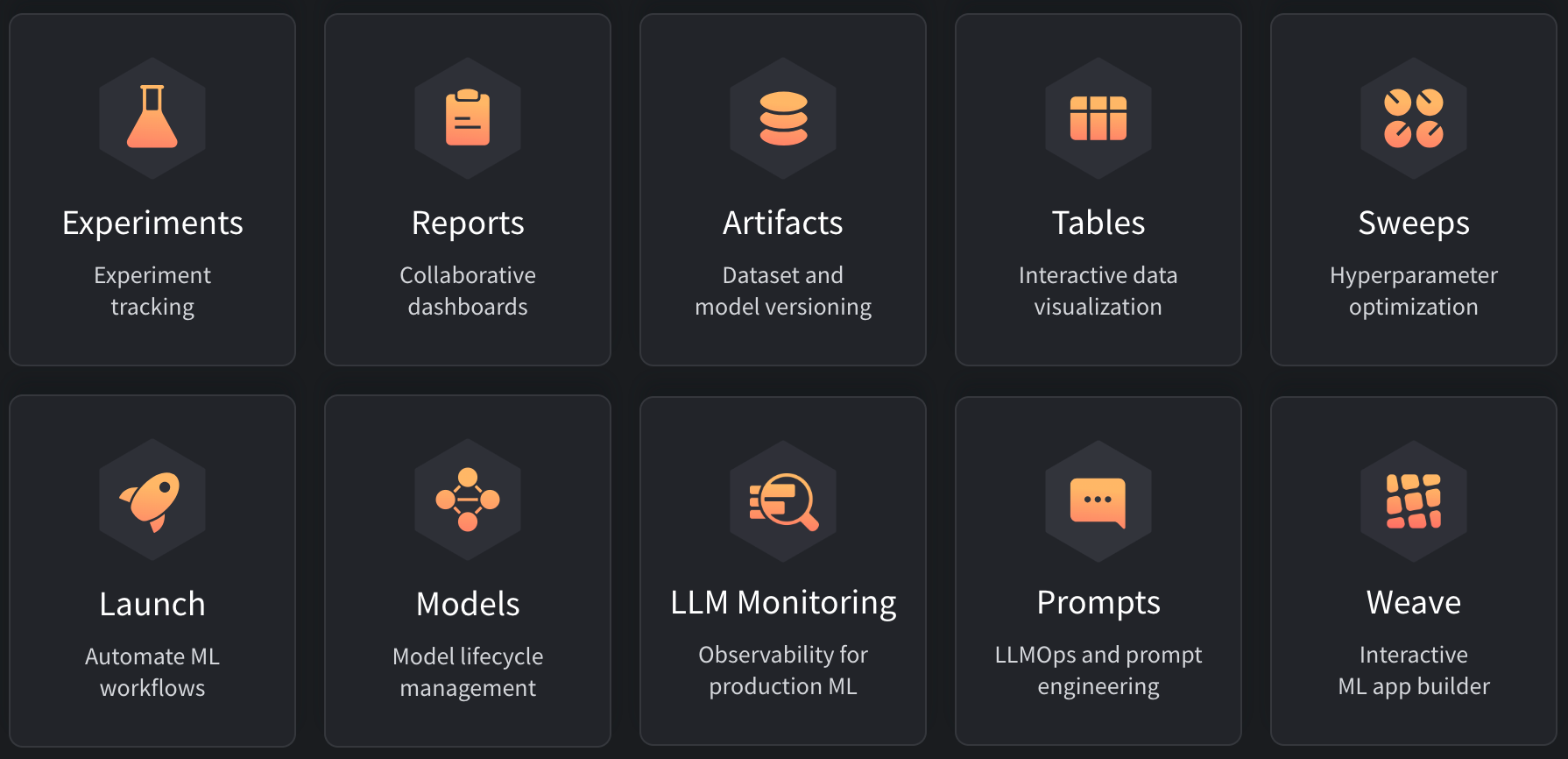The AI Developer Platform
Weights & Biases helps AI developers build better models faster. Quickly track experiments, version and iterate on datasets, evaluate model performance, reproduce models, and manage your ML workflows end-to-end.
The Weights and Biases (wandb) ecosystem is a set of tools and services that are designed to help with machine learning experiment tracking, visualization, and collaboration. It provides a platform for logging and analyzing machine learning experiments, managing and versioning datasets, and creating interactive visualizations.

Here are some key components of the wandb ecosystem:
- Logging and Tracking: wandb provides a Python library that allows you to easily log and track your machine learning experiments. You can log various types of data such as metrics, parameters, configurations, and artifacts. This data is recorded and stored in the wandb system, which enables you to review and compare experiments.
- Visualization: wandb offers a web interface where you can visualize and analyze your experiment data. You can create plots, charts, and graphs to gain insights into your experiments and compare different runs. wandb also provides customizable dashboards for organizing and presenting experiment results.
- Collaboration: wandb facilitates collaboration among team members working on machine learning projects. You can share experiment results and visualizations with your team members, discuss findings, and iterate on models and experiments together. wandb supports collaborative debugging and error analysis by allowing users to comment on specific runs or sections of code.
- Integration: wandb integrates seamlessly with popular machine learning frameworks and libraries such as TensorFlow, PyTorch, and scikit-learn. You can log your experiments and track your models' performance without modifying your existing codebase significantly. wandb also integrates with cloud computing platforms and cluster schedulers to facilitate large-scale experiment management.
- Artifact Management: wandb provides a system for managing and versioning datasets and other associated files called artifacts. You can associate artifacts with specific runs and track their versions over time. This helps in maintaining reproducibility and traceability of experiments.
W&B Docs | Weights & Biases Documentation

